Having worn down teeth is not just an aesthetic problem as it is often a symptom of another serious issue, and there can be a number of reasons behind why it is happening to you.
Fortunately, it is not something that you will have to put up with for the rest of your life. Provided that you first receive a diagnosis for why your teeth are becoming worn and then receive treatment, you can look forward to a future where you have lovely full teeth and a perfect smile.
How is this possible? One avenue of cosmetic treatment that may be suitable for you is veneers. Read more at our veneers London page. We find veneers to be an excellent material for improving the cosmetics of teeth due to their versatility, affordability, and resilience in keeping their appearance over the years following application. This makes them a great option for a wide range of ailments, for example, if you have pitted teeth or want to know how to show more teeth when you smile.
Here are a few photos of our wonderfully satisfied clients showcasing their beautiful dental veneers:
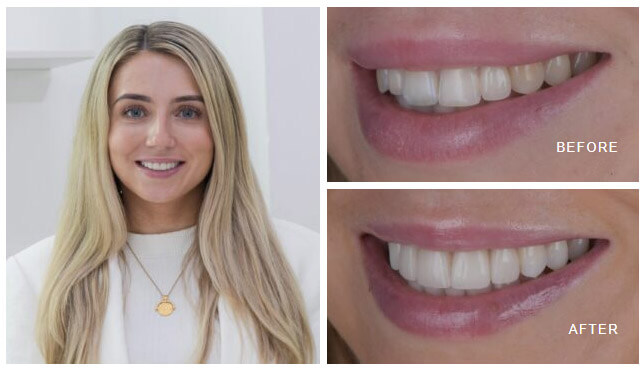
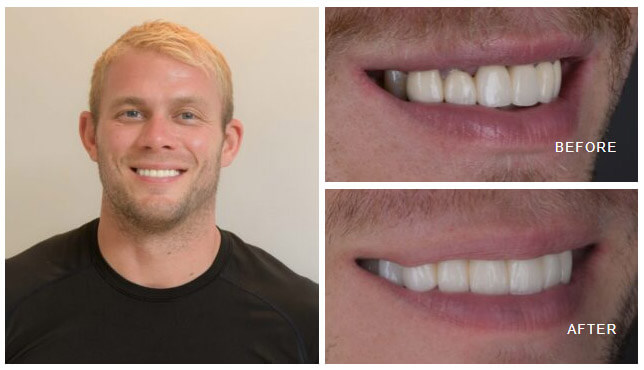
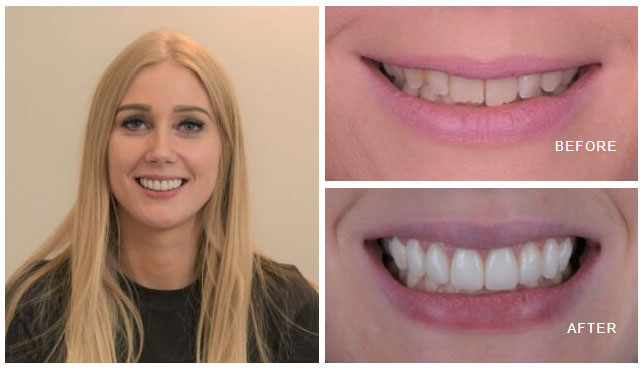
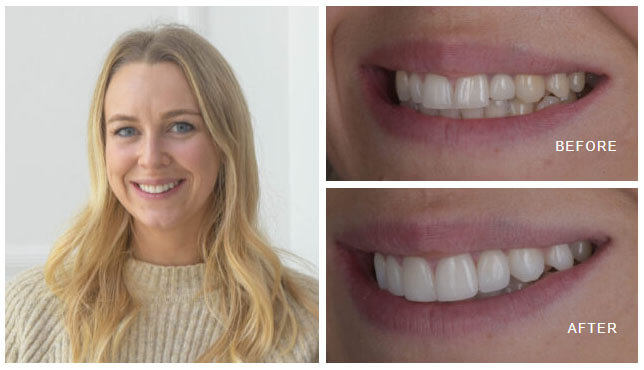
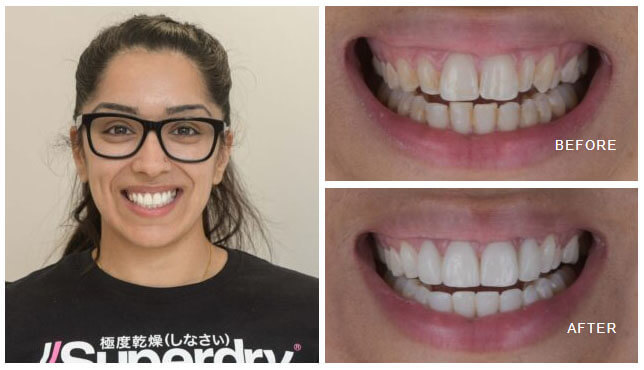
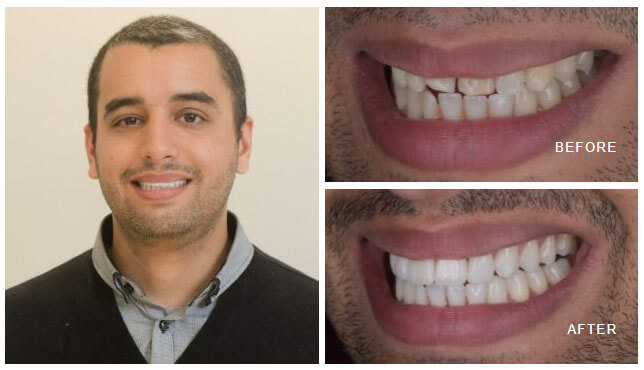
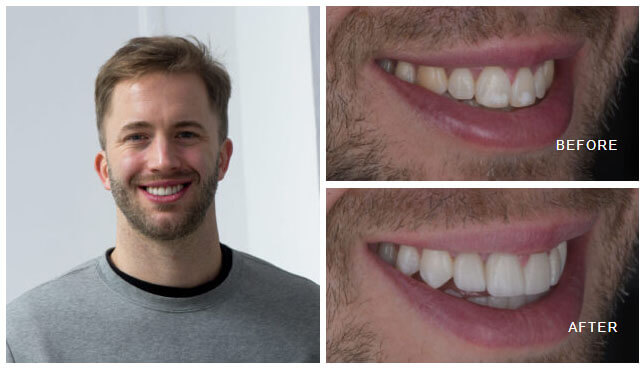
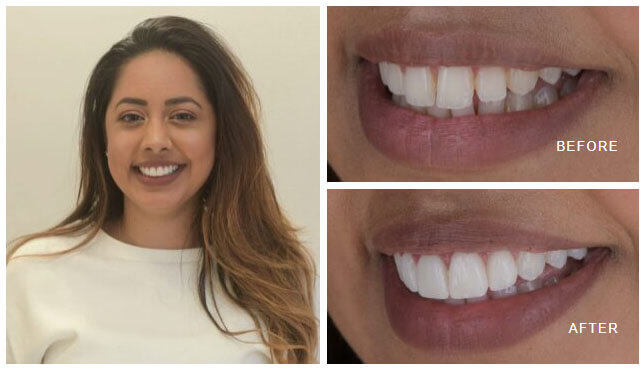
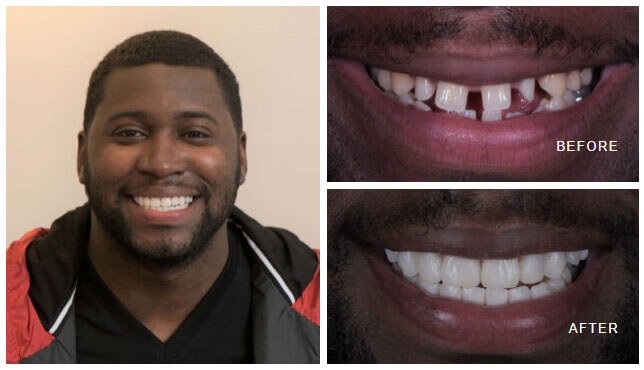
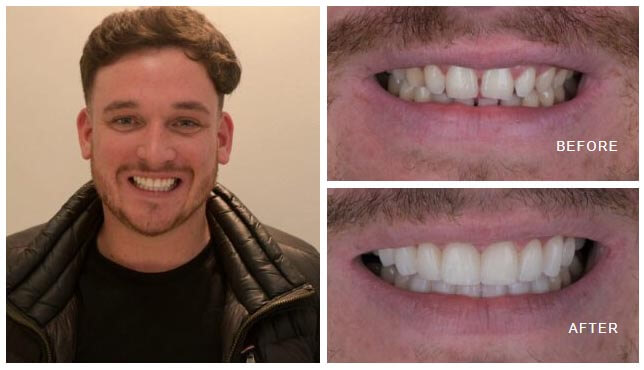
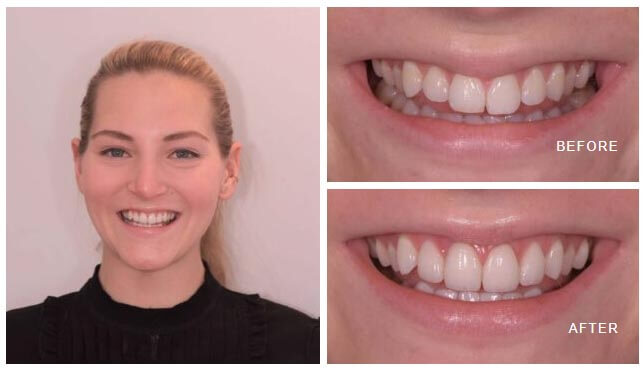
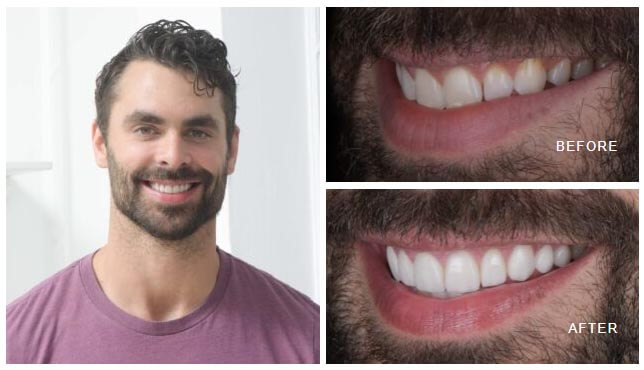
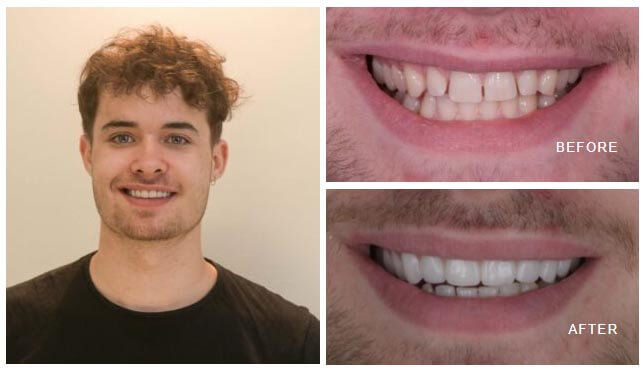
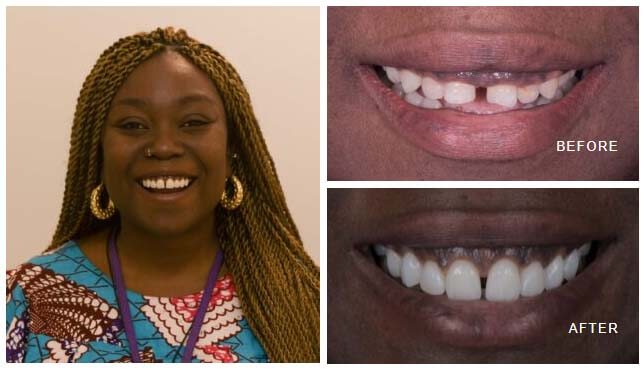
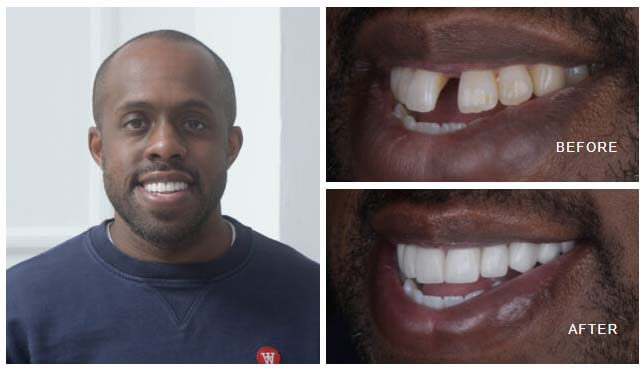
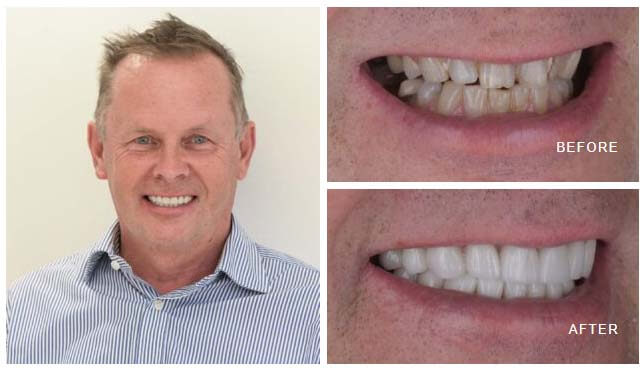
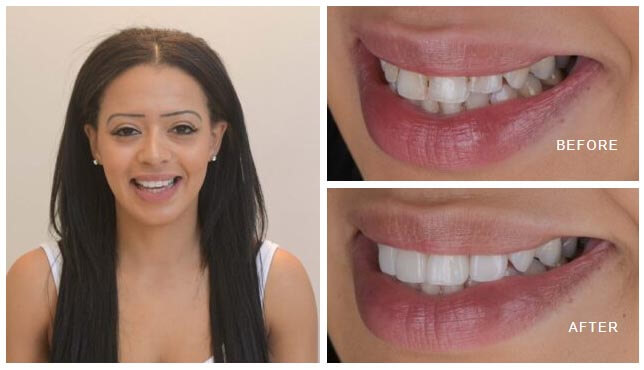
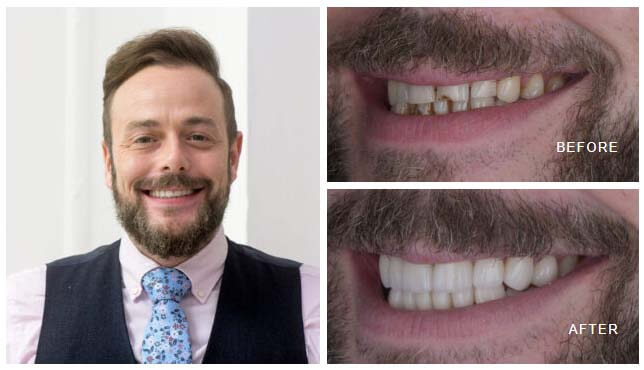
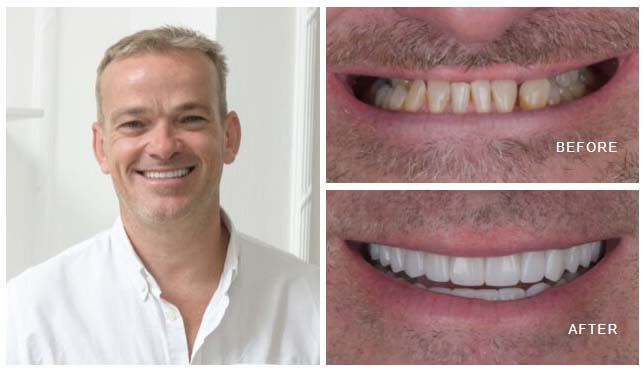
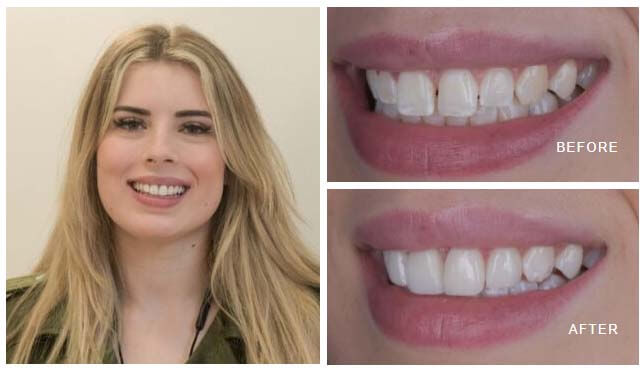
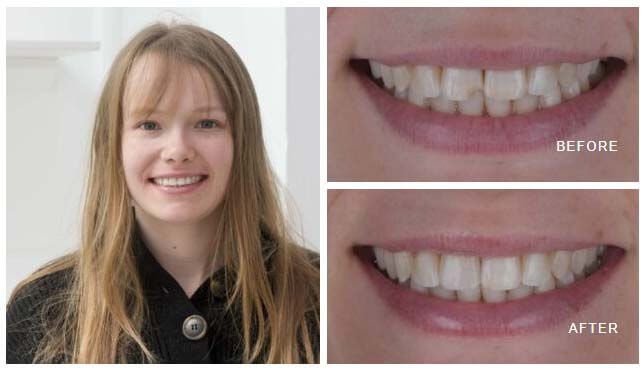
What are worn teeth?
Teeth are referred to as worn when the enamel that makes up their outer structure becomes damaged and loses its shape, commonly along the biting edge.
Worn enamel on the front teeth is usually the first sign that most people with worn teeth notice. However, some wear on the molars may already be underway that is harder to identify.
Over time, teeth do wear away naturally but only to a small, mild extent. It becomes a problem when you are accelerating this damage at a younger age, leaving you susceptible to excessive wear as you get older.
There are also conditions that you may have that can result in premature tooth wear. We will discuss three of the most common reasons here.
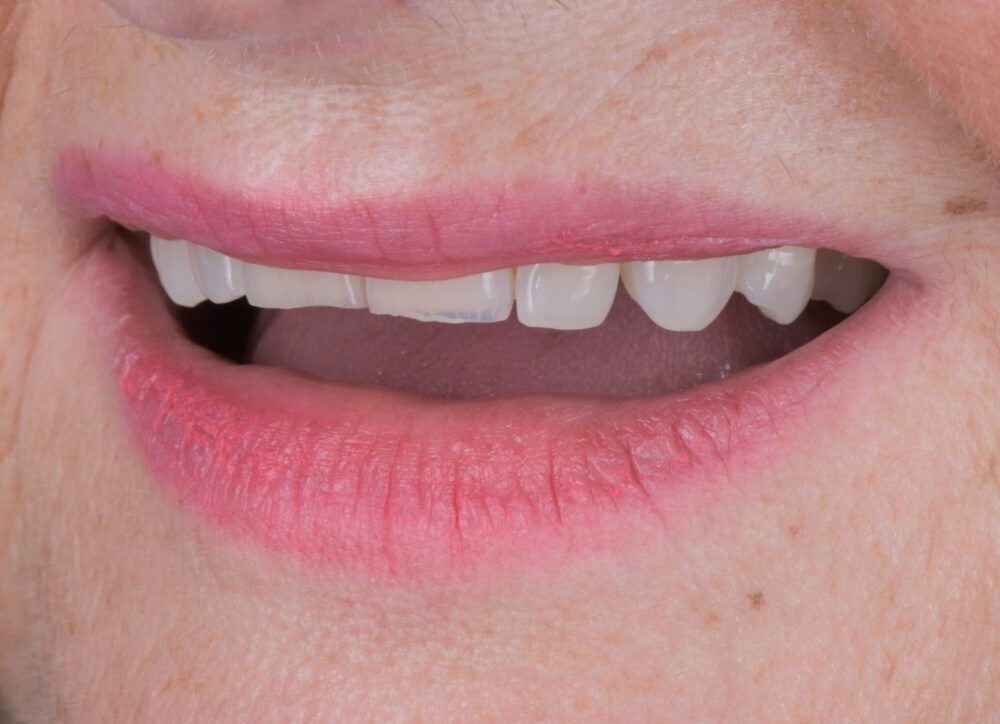
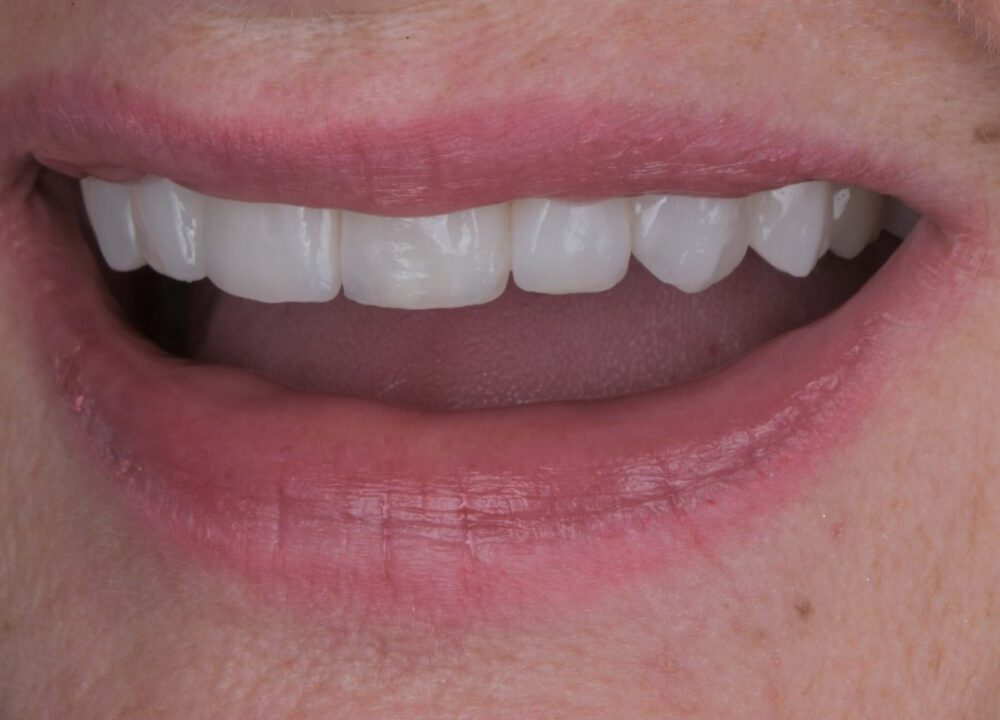
Broken or chipped
Repeated physical trauma to the teeth can be classed as wear. This can present itself as small breaks or chips to the exterior of the tooth, where there is no damage to the interior (pulp) of the tooth.
This type of wear is irregular and can happen spontaneously when you bite something hard or receive an impact injury to the mouth. Although it is more common if your teeth are already damaged or weakened, for example, by decay.
Bruxism
Bruxism, commonly known as teeth grinding, can quickly wear through the enamel on your teeth.
Damage to your teeth from Bruxism can appear quite quickly, especially if you are unaware that you grind your teeth when you are asleep. For example, you might spot your front teeth thinning at the bottom and then realise that your molars have already worn down quite far.
Tooth damage is not the only side effect that bruxism can cause. You may find that you suffer from jaw pain (TMD) or recurring headaches.
Bulimia
Bulimia nervosa is an eating disorder where an individual may binge eat before inducing vomiting in an effort to prevent weight gain.
Like other eating disorders, bulimia nervosa is a very serious issue and if you show any symptoms of bulimia, you should seek help from your doctor as soon as possible.
Tooth wear is a side effect of bulimia. When we vomit, stomach acid travels into the mouth where it increases the risk of tooth decay. Because individuals with bulimia will frequently vomit, their risk of tooth decay from stomach acid will be much greater than in others.
This risk of damage from stomach acid is also exacerbated by the fact that people with bulimia are not getting sufficient nutrients from their diet, and so may have weakened teeth and bones as a result.
Can you have veneers on worn teeth?
You may be able to receive veneers as worn-down teeth treatment provided that the wear is not excessive and you have received treatment for whatever ailment was wearing down your teeth. If the damage is excessive then the tooth will need to be built up using other methods before you can receive veneers.
The reason for this is that veneers are very thin in order for them to look and feel their best. If there is insufficient natural tooth structure to support the veneers then the patient runs the risk of breaking them whenever they apply pressure, for example when eating.
If there is only a mild amount of damage then veneers will still be a viable treatment option. In fact, your cosmetic dentist may have to partially shave your tooth structure anyway before you can receive veneers.
Putting a stop to any issues that were causing your teeth to wear down is crucial for the success of your veneers. For example, if you receive bruxism veneers and continue to grind your teeth, then you will damage your veneers and this will void any warranty that came with your treatment.
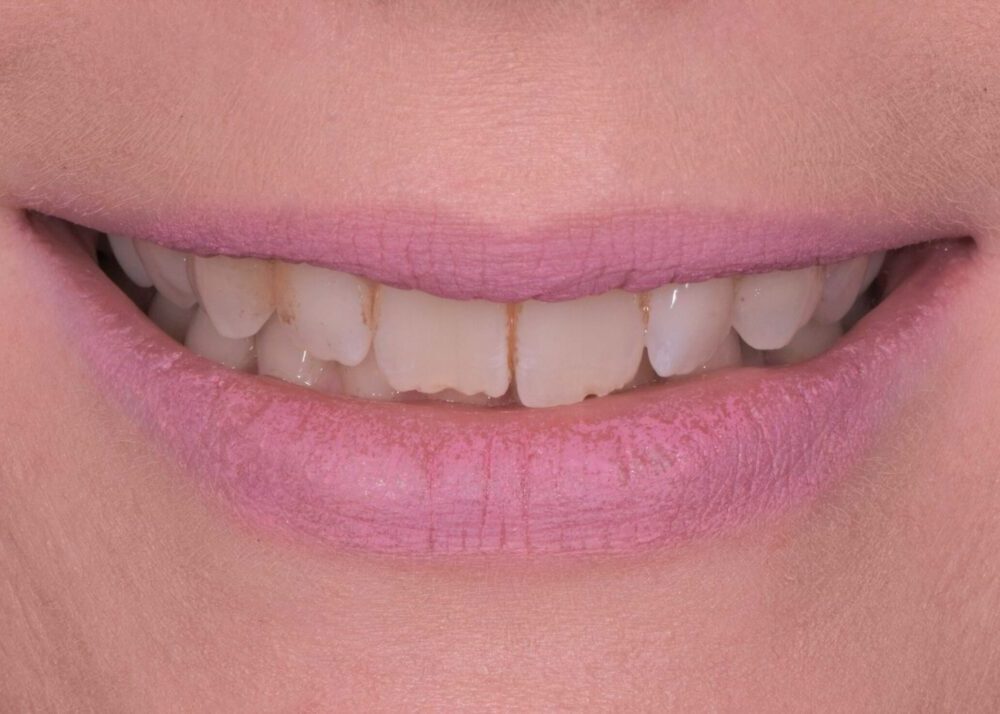
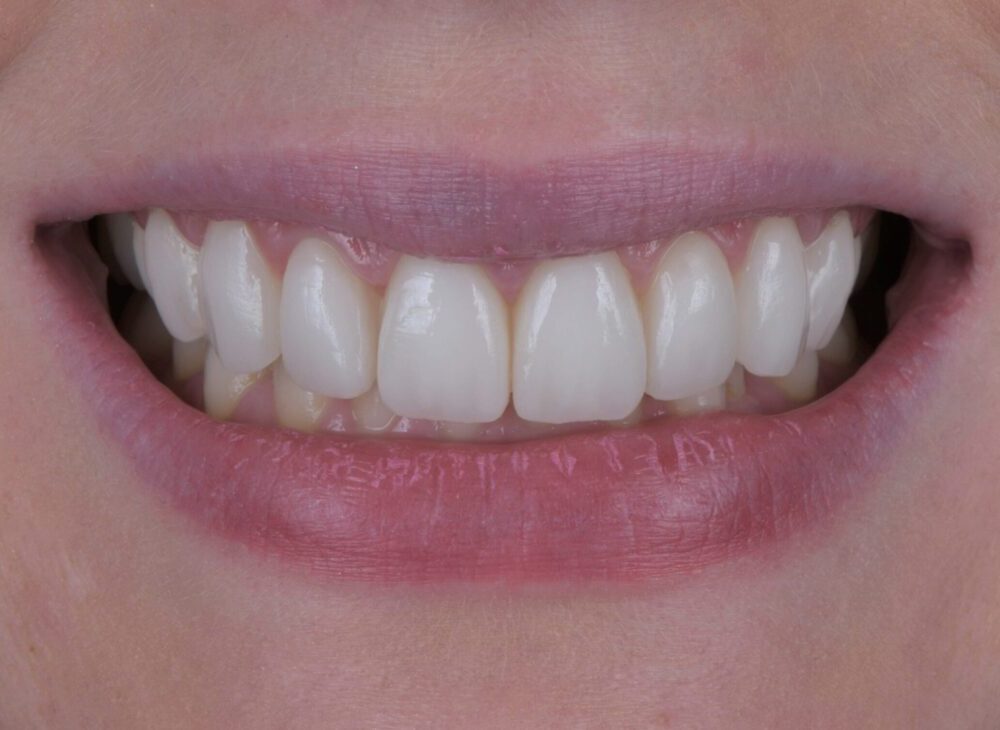
How to fix worn down teeth
To fix your worn-down teeth, we recommend that you visit Marylebone Smile Clinic for veneers in London.
If your teeth are worn as a result of an underlying health issue, such as bruxism or bulimia, then this will need to be addressed before you receive veneers. Otherwise, you run the risk of damaging your veneers the same way that your natural teeth have become damaged.
Our experienced cosmetic dentist, located in our clinic in Harley Street, London, will be able to view your teeth during a consultation and advise on whether you are a suitable candidate for veneers. If you are not eligible for veneers, then we may be able to offer you an alternative treatment using crowns or dental implants.
FAQs
Can you get veneers on broken teeth?
Provided that there is minimal damage to the tooth structure, you may be able to receive veneers on your broken teeth.
If there is internal damage to your tooth, or you have lost too much tooth material, then you may not be eligible for veneers. We can provide you with a more personalised answer when you attend a consultation or if you send us a picture of your current teeth.
For some examples of our work, take a look at some chipped front tooth before and after veneers examples in our Smile Gallery.
How to fix bulimia teeth?
The first step is to seek help with monitoring your bulimia, as receiving veneers without doing so may leave you at risk of damaging your new veneers.
If you are able to control your bulimia at an early stage, then hopefully you will only have minimal damage to your teeth. Otherwise you may need to have some restoration work performed on your teeth before you receive cosmetic treatments like veneers – if you are viable for them.



